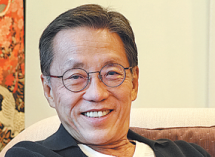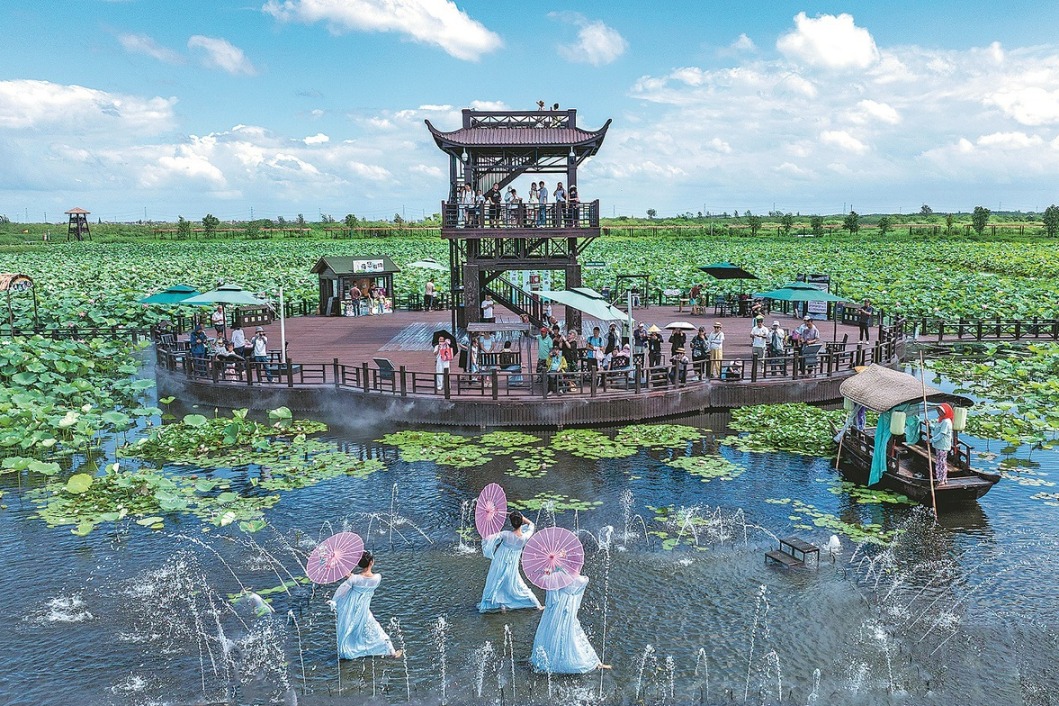Banyan Tree to branch out with two new brands
Rising middle class and budget air travel allow tailored products

Singapore luxury hospitality group Banyan Tree Holdings will introduce two brands in the near future to cater to "narrowly defined market segments", according to the company's founder and executive chairman Ho Kwon Ping.
Ho spoke to China Daily on Nov 29, ahead of a networking event in Shanghai organized by the Singapore Global Network.
Noting the hospitality group's four brands-Angsana, Banyan Tree, Cassia and Dhawa-Ho said that the next two will have names that start with "e" and "f". He also revealed that resort "e" will have less than 20 private villas and offer guests an intimate and romantic experience. The resort is scheduled to open in Indonesia next year.
"If you look at the hotel business as a spectrum, from super high-end, super boutique on one end and super mass but also boutique at the other end, the two new brands will cover both ends of the spectrum," he said.
Factors behind the new brands are a rising middle class and air travel made possible by low-budget carriers, he said. "When I first started the business, there were hardly any young Asians who could travel around the world. Now you can just hop on a plane like you're hopping on a bus."
The company plans to roll out 52 new hotels around the world within three years. Nearly half of these new establishments are to be in China. While Ho pointed out that China's hotel segment is oversaturated, he believes that the scale would eventually be tipped in the other direction.
"China today has one of the world's lowest national occupancy rates. So, yes, the market is saturated right now ... If you have this level of oversupply in Europe or Japan, you'd be dead," he said.
"But China is different-it is growing so much that in the next five years the oversupply will be eaten up."
The company's foray into China started in 2005 with Banyan Tree Ringha. The five-star resort is in the Shangri-La highlands at a Tibetan autonomous prefecture in Yunnan province. Just a year later, the company unveiled Banyan Tree Lijiang. Today, the hospitality group operates 17 hotels across China.
Anticipating the opportunities created by China's development, said Ho, has been one of the major factors behind the company's success.
"Decades ago, many people in China just wanted to copy the West ... Everybody just wanted to go to London, New York and the other major cities around the world. So, when we first started, we did something completely different-we went to Shangri-La in Yunnan province and then to Lijiang," he said. "People thought we were crazy to do so-there was nothing at these places back then."
Today, Yunnan is a top tourist hub in China. Lijiang ranks among the most popular travel destinations within the province. According to Xinhua News Agency, Lijiang welcomed 12.32 million arrivals and saw a total revenue of 25.64 billion yuan ($3.66 billion) during the first quarter of this year, up 21.5 percent and 15.13 percent respectively from a year ago.
While sustainable luxury has become popular in recent years, Banyan Tree Holdings had been practicing it long before such a term was coined.
Ho recalled that the motivation to make sustainability part of the company's core values stemmed from its first integrated resort, Laguna Phuket, located on a former tin mine in Phuket, Thailand. "We bought the land because it was very cheap and the location had many lagoons with beautiful waters. Little did we know that the water was bright blue because it was heavily polluted by chemicals," he said.
To salvage his investment, Ho kickstarted efforts to transform the land, which included planting thousands of trees, pumping the toxic water out of the lagoons and laying new topsoil.
Two years after opening Banyan Tree Phuket, Ho and his wife launched the Banyan Tree Gallery. The retail outlet helps the community by sourcing its products from local craftsmen. The company also started a training program for locals who have no access to education. Upon completion, students get to work at Banyan Tree hotels around the world.
Sustainability also extends to how the company's resorts are built and operated. Today, the company strives to rely on more sustainable materials like bamboo and avoid the use of natural stone, Ho said. It has also banned the use of plastic bottles and straws.

Today's Top News
- Thai army confirms ceasefire across all Thai-Cambodia border areas
- Nation's AI industry hailed as economic growth driver
- China launches national child subsidy program
- Xi urges all-out flood relief efforts
- UK asylum hotel protests spread to multiple cities
- Derailed German train 'probably hit landslide'































